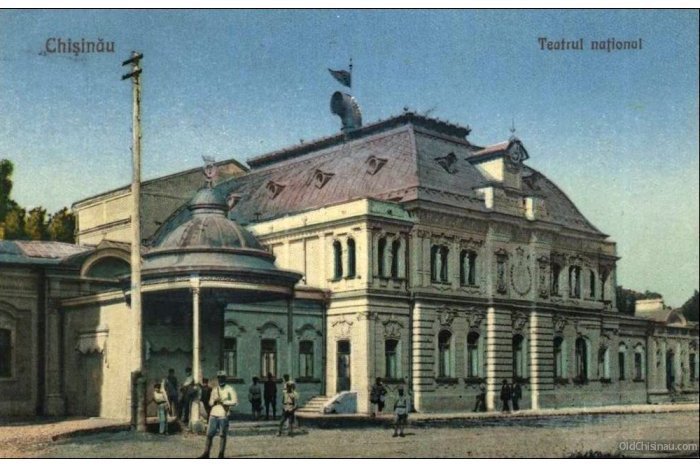Mihai Eminescu National Theatre of Moldova: 100th anniversary of foundation
10:59 | 28.06.2021 Category: Culture
Chisinau, 28 June /MOLDPRES/- The 100th anniversary of the foundation of the Mihai Eminescu National Theatre (TNME) with status of national theatre will be marked on 6 October. The institution’s foundation was influenced by more initiatives coming from personalities of the Romanian culture and culture institutions. The today’s subject is about the 1940 year and the theatre in the war time.
Contacted by MOLDPRES, TNME director Petru Hadarca said that, in June 1940, based on the secret protocols of the Molotov-Ribbentrop Pact, the Soviet Army crossed the Dniester and set the border along the Prut river. People were taken aback; a few of them were aware of the Soviet regime’s realities. The offensive of the new power was massively unfolding at all levels; on the one hand, the NKVD (People's Commissariat for Internal Affairs) was opening files, arresting and sentencing to death people declared as ‘’enemies of the people’’ and on the other hand, the propaganda started violently, occupying stages, departments, education and culture institutions.
In autumn 1940, the TNME director stressed, communist commissioners ruled to organize a contest for the foundation of a Moldovan Theatre in Chisinau.
”In Chisinau, the language was turned into a battlefield and struggle weapon. The authorities ruled that the Romanian language, in its literary variant, of the classical writers, was a product of the bourgeois spirit, a salon language of the Bucharest oligarchs, was the language of the class enemies. Those who declared for the Romanian language were eliminated, and so the ground for the ‘’bright future’’ was cleaned and they were convicted for many years of imprisonment in GULAG. Professor Eremia Cecan and sociologist Petre Stefanuca were sentenced to death, accused of ‘’Romanian phobia’’, ‘’fascism’’, ‘’anti-Sovietism,’’ for their categorical attitude against the theory of Moldovanisation and introduction of the Russian alphabet. All members of the Chisinau Radio editorial staff were shot. Some of them did not resist the pressures and committed suicide – journalist Dumitru Remenco, a well-known pedagogue, former headmaster of the Mihai Eminescu lyceum from Chisinau, Alexandru Ouatu, etc. The well-known composer, Mihail Berezovschi, died in non-elucidated conditions. The theatre is not only an art of emotions and intelligence; the theatre is a living and sensitive organism. In a nightmare reality, deprived of freedom, stripped off the tradition of the past, sunk in the avalanche of the merciless class hatred, the theatre was struggling along with the audience, looking for a spiritual benchmark, a bit of home,’’ Petru Hadarca said.

